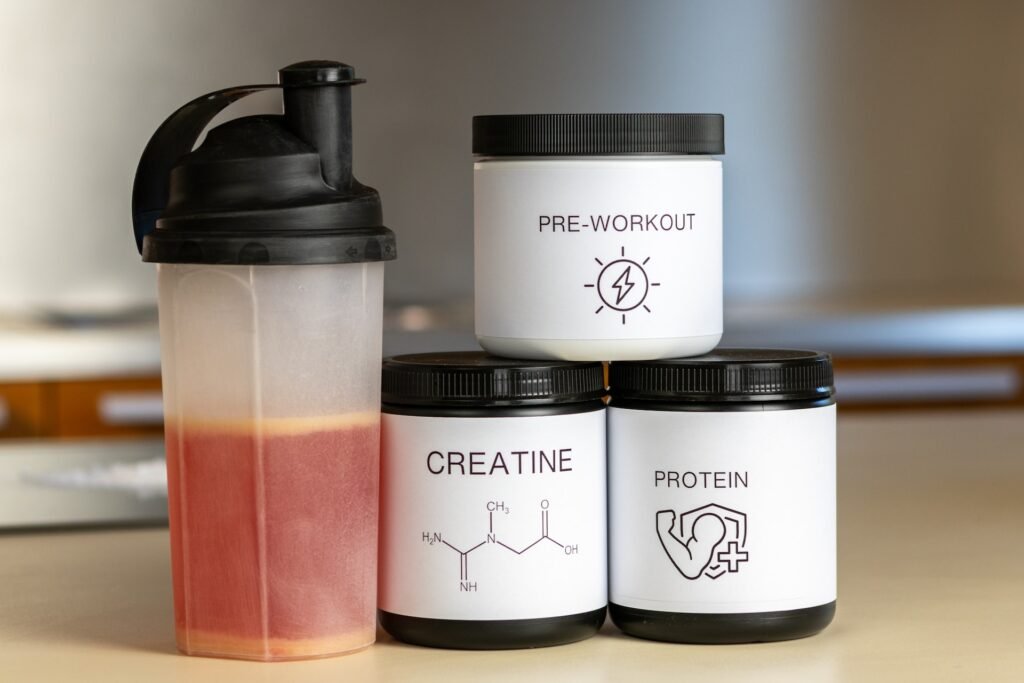Fitness journey is not merely about breaking a sweat; it’s a holistic approach that involves both dedication in the gym and mindfulness in the kitchen. Welcome to the definitive guide on “The Dos and Don’ts of Pre-Workout Nutrition: What Really Works.” As we navigate through the intricacies of fueling your body before a workout, this comprehensive exploration will unravel the science, dispel common myths, and provide practical insights for crafting a pre-workout nutrition strategy that aligns with your fitness goals. From understanding the crucial role of macronutrients to tailoring your meals for different workout types, this guide is your compass to navigating the often perplexing landscape of pre-exercise nutrition. So, grab your water bottle and join us on this journey to unlock the secrets of optimal pre-workout nutrition for enhanced performance and results.
| Aspect | Description | Tips |
|---|---|---|
| Importance of Pre-Workout Nutrition | Understand the significance of fueling your body before exercise to enhance performance. | Prioritize a balanced pre-workout meal to provide essential nutrients and energy for optimal workout results. |
| What to Eat Before a Workout | Learn about the ideal composition of a pre-workout meal, including proteins, carbohydrates, and fats. | Choose complex carbs, lean proteins, and healthy fats; hydrate adequately; avoid heavy or greasy foods. |
| Timing of Pre-Workout Meals | Explore the recommended timing for pre-workout meals to ensure optimal digestion and energy utilization. | Consume a complete meal 2-3 hours before or a smaller snack 30-60 minutes prior to exercising. |
| Supplements in Pre-Workout Nutrition | Understand the role of supplements in enhancing performance and their integration with a balanced diet. | Use supplements as complements, not replacements; consult with a healthcare professional for personalized advice. |
| Vegetarian and Vegan Nutrition | Discover specific guidelines for pre-workout nutrition for those following vegetarian or vegan diets. | Include plant-based proteins, fruits, vegetables, and whole grains to meet nutritional needs. |
| Measuring the Impact | Learn how to assess the effectiveness of pre-workout nutrition by monitoring key performance indicators. | Keep a training log to track energy levels, endurance, strength, and adjust nutrition based on observations. |
| Adjusting Nutrition as You Progress | Recognize the need to adapt pre-workout nutrition as your fitness journey evolves and goals change. | Regularly reassess and adjust your nutrition plan to meet increased energy demands and support muscle growth. |
| Science Behind Pre-Workout Nutrition | Delve into the scientific basis of effective pre-workout nutrition and its impact on muscle synthesis. | Understand how macronutrients contribute to energy levels and muscle support for informed nutritional choices. |
| Common Mistakes to Avoid | Identify pitfalls in pre-workout nutrition, including overeating, choosing the wrong foods, and skipping meals. | Tailor your nutrition to individual needs; avoid common mistakes for enhanced workout comfort and effectiveness. |
| Tips for Maximizing Pre-Workout Nutrition | Benefit from expert advice on optimizing pre-workout nutrition for improved performance. | Incorporate slow-digesting carbs, experiment with meal timing, and listen to your body’s signals for personalized success. |
- Understanding Macronutrients: The Foundation of Pre-Workout Meals
- Timing Your Pre-Workout Meals: When to Eat for Optimal Performance
- The Role of Hydration in Pre-Workout Nutrition
- Customizing Your Pre-Workout Nutrition: Factors to Consider
- Top Foods to Include in Your Pre-Workout Diet
- Common Pre-Workout Nutrition Mistakes to Avoid
- Supplements and Pre-Workout Nutrition: What You Need to Know
- Balancing Proteins, Carbs, and Fats: Optimal Ratios for Energy
- Pre-Workout Nutrition for Different Types of Workouts
- Vegetarian and Vegan Pre-Workout Nutrition Guidelines
- Measuring the Impact: How Pre-Workout Nutrition Affects Performance
- Adjusting Your Pre-Workout Nutrition as You Progress
- The Science Behind Pre-Workout Nutrition: Understanding the Research
- Expert Tips and Tricks for Maximizing Pre-Workout Nutrition
- Final Thoughts:
- FAQs:
Pre-workout nutrition is like fueling up your car before a long journey. It’s all about providing your body with the right energy and nutrients to ensure you have a successful workout. But it’s not just about gulping down a protein shake or grabbing a banana; it’s a strategic approach that can significantly impact your performance and results.
Understanding Macronutrients: The Foundation of Pre-Workout Meals
Macronutrients, comprising proteins, carbohydrates, and fats, are the building blocks of pre-workout nutrition. Proteins are crucial for muscle repair and growth, carbohydrates provide the much-needed energy, and fats, often underestimated, play a key role in sustained energy release. It’s like a trio in a band, each with a unique role, working together to create the perfect harmony for your workout.
Timing Your Pre-Workout Meals: When to Eat for Optimal Performance
The timing of your pre-workout meal is a delicate balance. Eating too close to your workout can lead to discomfort, while eating too early might leave you low on energy. Generally, aim to eat a complete meal 2-3 hours before exercising, or a smaller snack 30-60 minutes prior. This timing ensures that your body has enough time to digest and convert food into usable energy.
The Role of Hydration in Pre-Workout Nutrition
Hydration might not be the first thing you think of for pre-workout nutrition, but it’s a game-changer. Adequate fluid intake is essential to maintain peak performance. Dehydration, even in small amounts, can significantly impact your strength, endurance, and overall energy levels. Aim to drink at least 500 ml (about 2 cups) of water 2-3 hours before your workout, followed by a small sip-up just before you start.
Customizing Your Pre-Workout Nutrition: Factors to Consider
There’s no one-size-fits-all in pre-workout nutrition. Factors like your body type, workout intensity, duration, and personal goals play a pivotal role in determining what you should eat. For instance, a marathon runner’s pre-workout meal will differ vastly from that of a weightlifter. It’s about understanding your body’s needs and tailoring your nutrition plan accordingly.
Top Foods to Include in Your Pre-Workout Diet
When it comes to pre-workout nutrition, certain foods can give you an extra edge. Complex carbohydrates like oats and sweet potatoes provide sustained energy, while lean proteins such as chicken or plant-based options like tofu support muscle repair. Don’t forget fruits like bananas or apples for a quick energy boost and essential minerals. Including a variety of these foods can help ensure a well-rounded and effective pre-workout meal.

Common Pre-Workout Nutrition Mistakes to Avoid
One of the biggest missteps in pre-workout nutrition is overeating or choosing the wrong foods that can cause discomfort or sluggishness during your workout. Skipping meals is equally detrimental, as it can lead to decreased energy and endurance. Another common mistake is not considering individual dietary needs and restrictions, which can affect both performance and health.
Supplements and Pre-Workout Nutrition: What You Need to Know
Supplements can be a valuable addition to your pre-workout nutrition, but it’s crucial to use them wisely. Pre-workout powders, BCAAs (Branched-Chain Amino Acids), and creatine can enhance performance, but they’re not one-size-fits-all solutions. Understanding your body’s needs and consulting with a healthcare professional can help you make informed decisions about which supplements, if any, are right for you.
Balancing Proteins, Carbs, and Fats: Optimal Ratios for Energy
Finding the right balance of macronutrients is key to an effective pre-workout meal. A general guideline is to focus on a higher ratio of carbohydrates for energy, moderate protein for muscle support, and low to moderate fats, as they take longer to digest. However, these ratios can vary based on individual goals, the type of workout, and personal dietary preferences.
Pre-Workout Nutrition for Different Types of Workouts
Your pre-workout nutrition should align with the type of workout you’re planning. Endurance activities like running or cycling require more carbohydrates for sustained energy, while strength-based workouts might benefit from a higher protein intake to support muscle repair and growth. Tailoring your pre-workout meal to the specific demands of your workout can significantly enhance your performance and recovery.
Vegetarian and Vegan Pre-Workout Nutrition Guidelines
For vegetarians and vegans, pre-workout nutrition requires some creativity to ensure adequate protein and energy levels. Plant-based proteins like lentils, chickpeas, and quinoa are excellent choices. Nuts and seeds can provide healthy fats, while fruits and whole grains offer necessary carbohydrates. It’s important for vegetarians and vegans to plan their meals carefully to ensure they’re getting a balanced intake of all essential nutrients.
Measuring the Impact: How Pre-Workout Nutrition Affects Performance
To truly understand the effectiveness of your pre-workout nutrition, it’s essential to monitor how it impacts your performance. This can be done by keeping a training log, noting energy levels, endurance, strength, and overall workout quality. Adjustments can then be made based on these observations, allowing for a more personalized and effective nutrition strategy.
Adjusting Your Pre-Workout Nutrition as You Progress
As your fitness journey evolves, so should your pre-workout nutrition. Increased workout intensity or changes in training goals may require adjustments in your nutritional intake. For instance, as you build more muscle, your protein needs might increase. Regularly reassessing and tweaking your pre-workout meals ensures that your nutrition keeps pace with your evolving fitness goals.
The Science Behind Pre-Workout Nutrition: Understanding the Research
Delving into the science of pre-workout nutrition reveals why certain practices are recommended. Studies have shown that the right balance of macronutrients can enhance muscle protein synthesis, boost energy levels, and improve overall performance. Understanding the research helps in making informed decisions about your pre-workout meals, ensuring they are grounded in scientific evidence.
Expert Tips and Tricks for Maximizing Pre-Workout Nutrition
Gleaning insights from fitness and nutrition experts can provide valuable tips for optimizing pre-workout nutrition. For example, incorporating slow-digesting carbs for longer-lasting energy, or experimenting with meal timing to suit individual digestive comfort. Experts often suggest listening to your body and making adjustments as needed, as personal experience can be just as important as general guidelines.
Final Thoughts:
Mastering the art of pre-workout nutrition is a transformative journey that goes beyond what’s on your plate. It’s about understanding your body’s unique needs, adapting to evolving fitness goals, and making informed choices based on scientific insights. As we wrap up this exploration of “The Dos and Don’ts of Pre-Workout Nutrition: What Really Works,” remember that the key lies not in a one-size-fits-all approach but in customization and consistency. Whether you’re a seasoned fitness enthusiast or just beginning your wellness journey, the knowledge gained here empowers you to fuel your workouts with precision, unlocking your full potential. So, go ahead, implement these insights, listen to your body, and witness the positive impact of optimal pre-workout nutrition on your performance, energy levels, and overall well-being. Cheers to a healthier, more empowered you!
FAQs:
Q: What is the importance of pre-workout nutrition?
A: Pre-workout nutrition plays a crucial role in providing your body with the necessary energy and nutrients to optimize performance during exercise. It ensures you have the stamina, focus, and endurance needed for an effective workout.
Q: What should I eat before a workout?
A: The ideal pre-workout meal includes a balance of macronutrients – proteins, carbohydrates, and fats. Opt for complex carbs like oats, lean proteins such as chicken or plant-based alternatives, and healthy fats from sources like nuts. Hydration is also key.
Q: How soon before a workout should I eat?
A: Timing is essential. Consume a complete meal 2-3 hours before exercising or a smaller snack 30-60 minutes prior. This allows your body to digest and convert food into usable energy without causing discomfort.
Q: Can I rely on supplements for pre-workout nutrition?
A: Supplements can be beneficial, but they should complement a well-balanced diet. Pre-workout powders, BCAAs, and creatine can enhance performance, but it’s crucial to understand your individual needs and consult with a healthcare professional.
Q: Are there specific guidelines for vegetarian or vegan pre-workout nutrition?
A: Absolutely. Vegetarians and vegans can ensure sufficient protein intake through plant-based sources like lentils, chickpeas, and quinoa. Incorporating a variety of fruits, vegetables, and whole grains will provide the necessary nutrients for optimal performance.
Q: How can I measure the impact of my pre-workout nutrition?
A: Keep a training log to monitor energy levels, endurance, strength, and overall workout quality. This self-assessment allows you to make informed adjustments to your pre-workout nutrition based on real-time performance feedback.
Q: Is it necessary to adjust pre-workout nutrition as my fitness level progresses?
A: Yes, absolutely. As your fitness goals evolve, so should your pre-workout nutrition. Adjustments may be needed to meet increased energy demands, support muscle growth, and align with changing workout intensities.
Q: What are some common mistakes to avoid in pre-workout nutrition?
A: Overeating, choosing the wrong foods, skipping meals, and not considering individual dietary needs are common pitfalls. Tailoring your pre-workout nutrition to your specific requirements helps avoid these mistakes.
Q: Can pre-workout nutrition impact different types of workouts differently?
A: Yes, the type of workout influences your pre-workout nutrition strategy. Endurance activities may require a focus on carbohydrates, while strength-based workouts may benefit from higher protein intake. Tailor your nutrition to suit your workout type.
Q: Where can I find more expert tips for maximizing pre-workout nutrition?
A: Seeking advice from fitness and nutrition experts is invaluable. They often provide tips on incorporating slow-digesting carbs, experimenting with meal timing, and listening to your body. Stay informed and stay fit!



